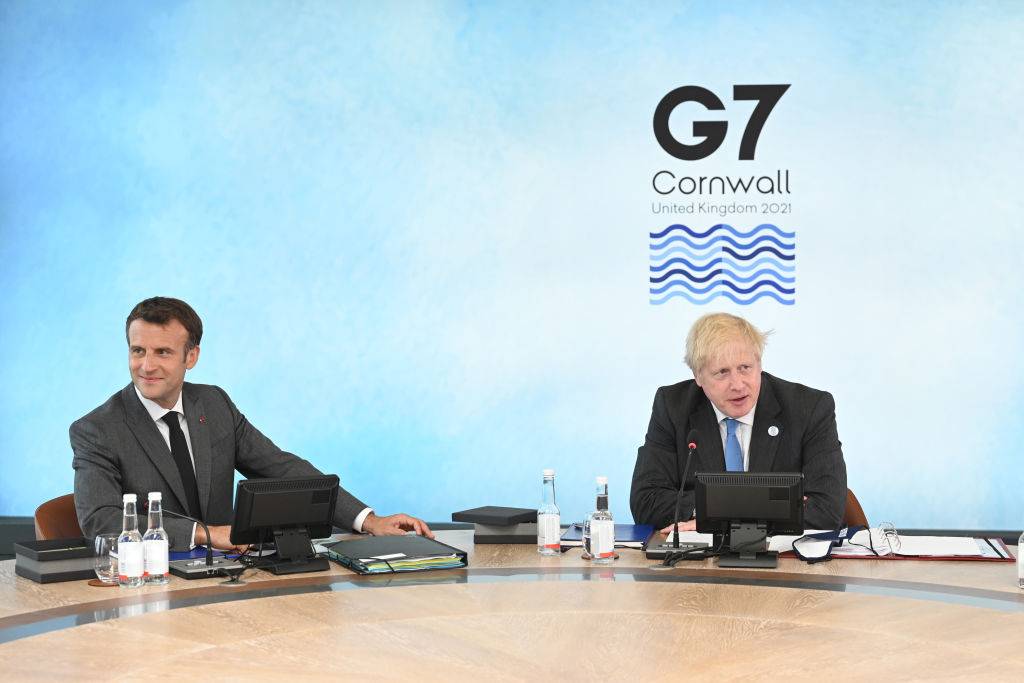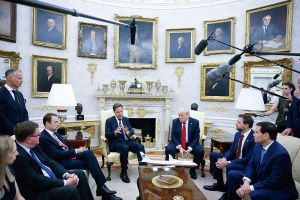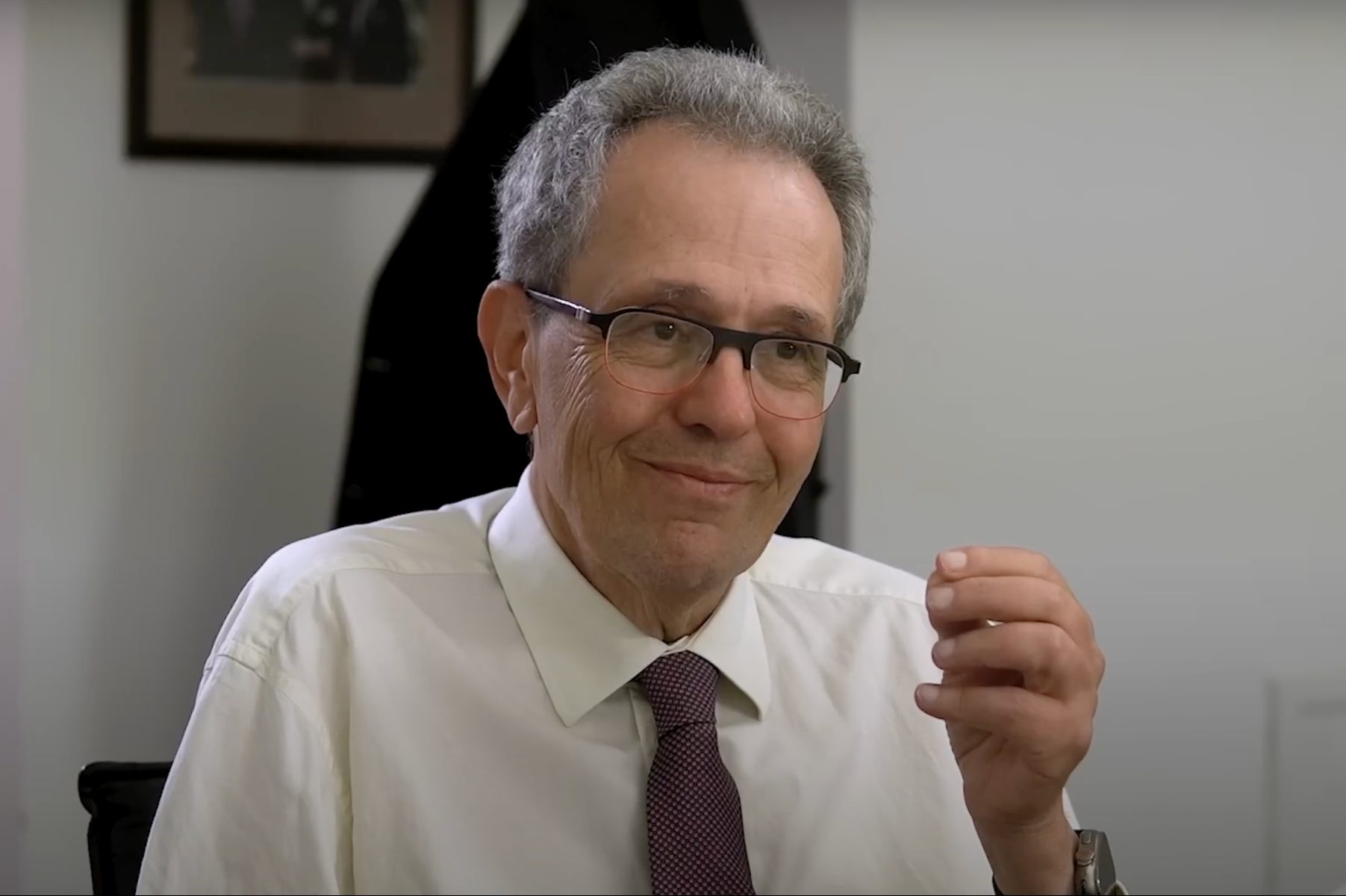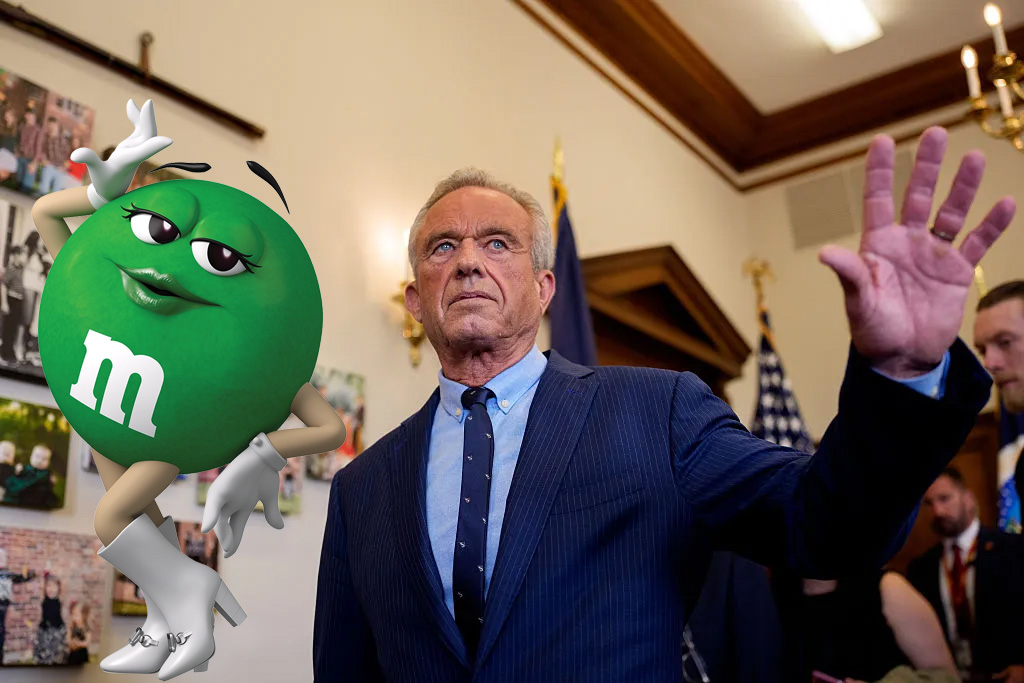While American and Russian officials are yelling at one another in the UN Security Council chamber, another international actor has found itself at the little kids’ table: Europe.
It’s possible the phrase “little kids’ table” is too harsh. To be fair, French president Emmanuel Macron is at least in direct communication with Russian president Vladimir Putin and urging his European colleagues to formulate a joint European negotiating position on the Ukraine question. France is also a chief mediator of the Normandy Format, which seeks to resolve the eight-year conflict in Ukraine’s Donbas region.
But Macron is largely an outlier on his own continent. He’s spent his five years in the Élysée Palace lighting a Bunsen Burner underneath Europe’s feet in an attempt to jolt them into acting more assertively on security issues. Yet outside of some rhetorical support from European commissioner Ursula von der Leyen, his efforts have failed to accomplish the sovereign, independent Europe he’s been looking for.
The months-long Russian military buildup near Ukraine’s border only confirms this. Europe is staring at what could be the worst security crisis on the continent in decades, yet its leaders are bit players, relegated to begging for some kind of involvement. As Jeremy Shapiro of the European Council on Foreign Relations has written, Europe has a “lack of agency.”
The Russia-Ukraine imbroglio comes at a particularly bad time for the continent. The United Kingdom is stuck in a vortex of unending political dramas, with Prime Minister Boris Johnson trying to stay afloat after a series of damaging stories about his Covid-19 rule-breaking. France is in campaign season until April. The new German coalition government is still finding its footing and is internally divided on all matters Russia and Ukraine, including what Russian actions would trigger sanctions from Berlin and how far those theoretical sanctions would go (do they include the Nord Stream 2 natural gas pipeline?).
The only thing the European Union can agree on is that a Russian invasion of Ukraine would be horrible. Anything beyond that, like sending Ukraine over $1.1 billion in economic assistance, will either take weeks to get approved or wither on the vine of endless debate.
The Biden administration has been content with taking the lead. Over the last few weeks especially, the White House has sought to project a unified Western front against Moscow by warning of significant economic repercussions if Ukraine is invaded. The UK has joined in the effort, with British foreign secretary Liz Truss delivering a stern rebuke to Russia’s oligarchs.
The EU, meanwhile, hasn’t settled on much of anything. Consisting of twenty-seven individual member states, the supranational body is tasked with forging unity across a constellation of states with different interests, concerns, and degrees of exposure to Russian retaliation. And because many decisions require unanimity, a single country can delay EU action. To the extent that action has been taken, it’s occurred at the bilateral level, like the Baltic states sending Kyiv defensive weapons systems.
In official Washington, Europe playing a supporting role is par for the course. The US is the head, feet, arms, and backbone of the Western security order. Americans are used to being at the front of the pack, not so much dictating the West’s response as cajoling the West toward the US position. The current dispute with Russia over Ukraine is no different; the US is calling the shots, while Europe is left consulting (or, more accurately, being consulted).
In this instance, that arrangement may be for the best. For one, with over 125,000 Russian troops, tanks, howitzers, artillery, Su-35 aircraft and Iskander ballistic missiles in the Russia-Ukraine border region, there is a sense of urgency to find a path toward de-escalation. Waiting around for Europe to arrive at a common position isn’t exactly showing the urgency that is required for this situation. Russia has also made it obnoxiously clear that it doesn’t want to waste its time talking to the Europeans anyway, viewing them as a sideshow.
But as comfortable as the US may feel in the lead, there will come a time (and that time was yesterday) when Europe will need to take responsibility for what happens in its own neighborhood. America may be a superpower, but its resources and bandwidth are not unlimited. Priorities have to be made, which means certain problems will have to be left to allies and partners that are actually in the immediate region and have a greater stake in solving or managing them. Europe, in other words, will have to step up on European security. And just as importantly, the United States will have to restrain its usual tendencies to be in charge and allow Europe to step up, encouraging strategic autonomy instead of suppressing it.
As the US tries to articulate a coherent diplomatic package that would allow all sides, Russia included, to save face and walk away from a confrontation, Washington will need to ask some deeply uncomfortable questions about its broader policy in Europe. If the Biden administration trusts its allies, it should give those allies the opportunity to prove their worth.

























